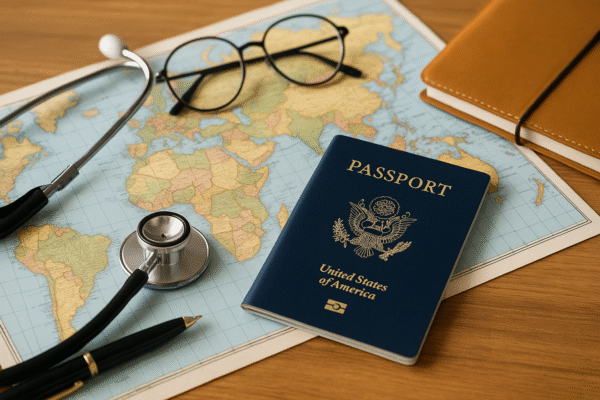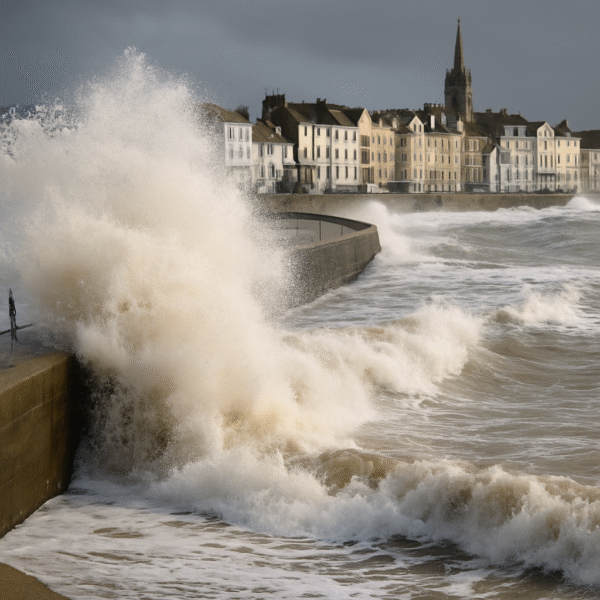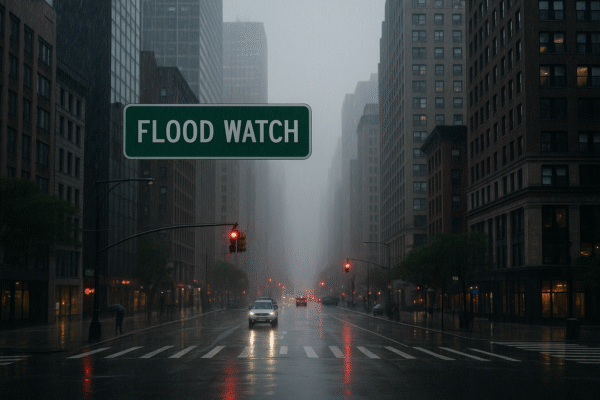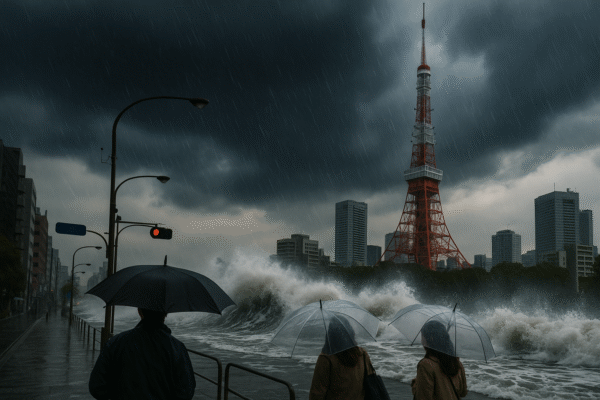Japan, long celebrated for its rich culture, cutting-edge infrastructure, and extraordinary public safety standards, is now under increased global scrutiny as a spate of natural disasters prompts urgent international travel warnings. Governments from Russia, North Korea, Libya, South Sudan, Iraq, Iran, Canada, and the United Kingdom have issued or updated their Japan travel advisories, citing severe weather threats from the ongoing typhoon season and the heightened risk of seismic activity along the Pacific Ring of Fire.
Japan’s Geographic Risk Profile
Japan’s geographic location makes it one of the most seismically and meteorologically active countries in the world. Nestled on the volatile Pacific Ring of Fire, it is prone to earthquakes, tsunamis, volcanic eruptions, and typhoons. While the country has developed sophisticated disaster preparedness infrastructure—such as early warning systems and evacuation drills—its vulnerability remains high, especially during the June to October typhoon season.
According to the Japan Meteorological Agency, the country experiences over 1,500 seismic events annually. Many are minor, but significant tremors—like the March 2011 Tōhoku earthquake—continue to serve as reminders of the scale of potential disaster. In parallel, the Japan Meteorological Agency reported over 10 named typhoons making landfall in 2023 alone, a pattern expected to repeat in 2025.
Recent Events Highlight Urgency
In July 2025, Typhoon Nari struck Hokkaido Island with wind speeds reaching 80 km/h (50 mph), causing power outages and transportation delays. Shortly thereafter, another typhoon battered the Ogasawara Islands, disrupting ferry services and isolating communities. These incidents underscore the unpredictable and widespread impact of typhoons across the Japanese archipelago.
The UK’s Foreign, Commonwealth & Development Office (FCDO) recently updated its advisory, highlighting specific concerns for coastal regions, including Okinawa and southern Kyushu, where tsunami and typhoon risks are magnified. Similarly, Canada’s Global Affairs Department cautions travelers to stay vigilant during summer months, emphasizing the potential for flash floods, landslides, and strong winds.
International Travel Warning Systems
Most countries employ a four-level travel advisory system to help citizens assess the safety of overseas destinations. The U.S. State Department’s classification ranges from Level 1 (exercise normal precautions) to Level 4 (do not travel). While Japan is currently not at Level 4, its position has become precarious as nations issue Level 2 or 3 alerts urging travelers to exercise increased caution or reconsider travel.
Russia, Iran, and North Korea—typically issuing advisories based on geopolitical dynamics—have recently cited Japan’s natural disaster threats in their notices. Libya and South Sudan also echoed these concerns, recommending that citizens avoid travel to Japan during peak typhoon season.
Safety Measures for Visitors
Despite the risks, Japan remains one of the most technologically advanced and organized countries for disaster management. Visitors are encouraged to download Japan’s NHK World app and Japan Official Travel App, which provide real-time alerts on typhoons, earthquakes, and tsunamis in multiple languages.
In addition, local municipalities routinely conduct emergency drills, while hotels and public transit systems are equipped with multilingual evacuation protocols. Travelers are advised to:
- Register with their embassy upon arrival.
- Stay informed via Japan Meteorological Agency updates.
- Identify evacuation centers in advance (especially in coastal or mountainous areas).
- Avoid unnecessary travel during typhoon warnings.
- Follow local instructions from authorities or hotel staff during emergencies.
Balancing Risks and Rewards
According to the Japan National Tourism Organization (JNTO), the country is on track to welcome over 40 million international visitors in 2025, a historic milestone fueled by the post-pandemic travel boom and the global popularity of Japanese culture. Tourists continue to flock to Tokyo, Kyoto, Osaka, and Sapporo for their food, history, and efficient transport systems like the shinkansen (bullet train), often hailed as the pinnacle of rail travel.
However, disaster awareness is now an essential part of the modern Japan travel experience. Even popular city hubs like Tokyo are not immune to natural shocks, having endured recent quakes and storm-related urban flooding.
Tourism Industry Response
Japanese tourism authorities are ramping up efforts to integrate disaster education into tourism promotion. The Ministry of Land, Infrastructure, Transport and Tourism (MLIT) has rolled out initiatives to encourage “resilient tourism,” which includes improving signage in English, offering disaster awareness tours, and training hospitality staff to assist foreign tourists during emergencies.
Destinations like Okinawa and Hokkaido are expanding public information campaigns during high-risk months. Travel agencies have also begun to offer flexible booking policies in response to sudden weather disruptions, helping mitigate the financial risks for international visitors.
Final Word for Travelers
Japan remains an incredible travel destination known for its cultural richness, modern cities, and welcoming spirit. However, in light of growing natural disaster threats, informed travel is more important than ever. By staying alert, using available safety apps, and respecting local advisories, tourists can enjoy Japan while minimizing risks.
For more travel news like this, keep reading Global Travel Wire




















